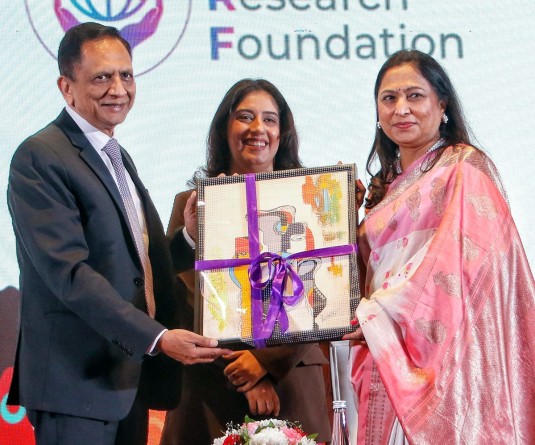IANS Photo

New Delhi, August 13 (IANSlife) Life is a journey filled with both highs and lows, comprising moments of success as well as instances of failure. Achievements bring forth feelings of happiness and contentment, while failures often evoke sentiments of disappointment and defeat.
Nevertheless, it remains imperative to grasp the fact that failures are an integral thread woven into the fabric of life. How we choose to react to these failures can wield a profound impact on our personal development and overall well-being.
Overcoming life's failures requires a shift in mindset and the adoption of transformative approaches. Embracing failure as a learning opportunity, cultivating resilience and self-compassion, and reframing failure as a stepping stone all contribute to our ability to navigate setbacks with grace and determination", says Archana Singhal, Counsellor & Family Therapist.
In this article, Singhal, who has been affiliated with organisations like 'The National Psychological Wellbeing Council' and 'The Counsellor Council of India' outlines three transformative approaches aimed at conquering life's inevitable failures.
Embracing Failure as a Learning Opportunity:
The first transformative approach involves shifting our perspective on failure. Instead of viewing it as an endpoint, we can choose to see failure as a stepping stone toward growth and improvement. Every failure has lessons to offer, providing us with valuable insights into our strengths, weaknesses, and areas for development. By embracing failure as a learning opportunity, we empower ourselves to approach challenges with a curious and open mindset.
When faced with a failure, take a moment to reflect on the experience. What can you learn from this setback? What skills or knowledge can you acquire to enhance your future endeavours? By asking these questions, you redirect your focus from self-blame to self-improvement. Remember, some of the world's most successful individuals have encountered numerous failures on their path to achievement. Thomas Edison, for instance, famously said, "I have not failed. I've just found 10,000 ways that won't work."
Cultivating Resilience and Self-Compassion:
Resilience is the ability to bounce back from adversity, and self-compassion involves treating ourselves with kindness and understanding, especially in times of difficulty. These qualities play a pivotal role in overcoming failures and setbacks. Developing resilience allows us to persevere despite challenges, while self-compassion helps counteract feelings of shame and self-criticism.
To cultivate resilience, focus on building a support network of friends, family, or professionals who can offer guidance and encouragement. Engage in activities that promote emotional well-being, such as exercise, mindfulness, or journaling. Similarly, practicing self-compassion involves treating yourself with the same kindness you would extend to a friend. When facing failure, remind yourself that everyone makes mistakes, and setbacks are a natural part of the journey.
Reframing Failure as a Stepping Stone:
The third transformative approach centers around reframing failure as a necessary stepping stone on the path to success. Often, our society places undue emphasis on achievements and outcomes, overlooking the process and effort required to reach those goals. By reframing failure as an essential part of progress, we shift our focus from the destination to the journey itself.
For example a child learning to ride a bicycle. Initial falls and wobbles are seen as part of the learning process, rather than failures. Similarly, in our adult lives, setbacks can be viewed as stepping stones that propel us forward. This approach encourages us to celebrate our efforts, regardless of the immediate outcome, and acknowledge that failure is not a permanent state but a transient phase.
"By integrating these approaches into our lives, we can not only overcome failures but also emerge stronger, more resilient, and better equipped to face the challenges that lie ahead. Remember, failure is not a verdict on your worth but a stepping stone on your journey toward personal growth and success", concludes Archana Singhal.






